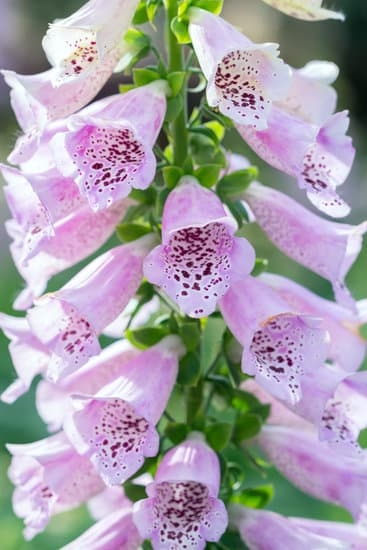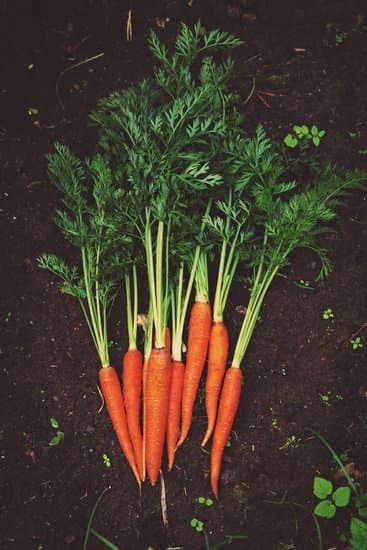Gardening has become more than just a hobby for many – it’s a thriving community where enthusiasts come together to celebrate their shared passion for plants and greenery. Hosting successful gardening events has become increasingly important, not only for avid gardeners but also for businesses looking to tap into this growing trend.
In this article, we will explore various gardening event ideas that will inspire you to create memorable experiences for your attendees, whether they are novice gardeners or seasoned green thumbs.
From flower shows and competitions to workshops and seminars, the options for gardening events are diverse and exciting. Garden tours and open houses offer a unique opportunity for participants to see stunning landscapes up close, while plant swaps and seed exchanges promote sustainability and camaraderie among fellow growers. The key is to choose the right type of event that aligns with your goals and interests, making sure to consider factors such as venue selection and theme development.
When planning a gardening event, the venue plays a crucial role in shaping the overall experience. Whether opting for an indoor space or an outdoor garden setting, each has its own advantages depending on the type of event you are hosting.
With creative theme ideas like seasonal motifs or children-friendly activities, you can set the tone for an engaging and educational gathering that appeals to a wide audience. Stay tuned as we delve deeper into the various aspects of organizing successful gardening events that leave a lasting impression on attendees.
Types of Gardening Events
Plant-a-Palooza: A Creative Gardening Event Idea
If you’re looking to host a unique and interactive gardening event, consider organizing a “Plant-a-Palooza”. This innovative event concept combines the elements of a plant swap with an engaging hands-on planting workshop.
Participants can bring their excess plants or seeds to exchange with others while also taking part in planting activities led by gardening experts. Plant-a-Palooza is not only a fun way to engage attendees but also promotes community building and sharing within the gardening community.
Herb Garden Tour: An Educational Gardening Event Idea
For those interested in hosting a more educational gardening event, a herb garden tour could be an excellent choice. This type of event allows participants to explore various herb gardens, learn about different herbs and their uses, and even participate in live demonstrations on how to propagate and care for herbs.
Herb garden tours are not only informative but also provide attendees with practical knowledge that they can apply in their own gardens at home. Consider partnering with local herb growers or botanical gardens to enhance the experience for participants.
Botanical Art Workshop: A Creative and Artistic Gardening Event Idea
Tap into the intersection of gardening and art by hosting a botanical art workshop as part of your gardening event lineup. Invite participants to create their own botanical-themed artworks using materials sourced from nature, such as pressed flowers, leaves, or natural dyes.
Provide guidance from skilled artists or instructors to help attendees unleash their creativity and produce unique pieces inspired by the beauty of plants and flowers. Botanical art workshops can cater to individuals of all ages and skill levels, making it an inclusive and engaging activity for everyone involved in the gardening event.
Choosing the Right Venue
When it comes to hosting a successful gardening event, one of the key decisions to make is choosing the right venue. The venue sets the tone for the event and can greatly impact the overall experience for participants.
Factors to consider when selecting a venue for a gardening event include the size of the space needed, accessibility for attendees, parking availability, and amenities such as restroom facilities and water sources. Additionally, considering whether an indoor or outdoor venue would be more suitable for the specific type of gardening event is crucial.
Indoor vs. Outdoor Venues
Outdoor venues are often preferred for gardening events like flower shows, garden tours, and plant swaps due to their natural setting and ability to showcase plants and flowers in their element. Outdoor venues also allow for more space and flexibility in terms of layout and design.
On the other hand, indoor venues can be beneficial for workshops, seminars, and demonstrations where climate control and seating arrangements are essential. In deciding between indoor and outdoor venues, organizers should also consider factors like weather conditions, seasonality, and potential backup plans in case of inclement weather.
Venue Selection Tips
When choosing a venue for a gardening event, it’s important to visit potential locations in person to assess their suitability. Look for venues that align with the theme and purpose of your event, whether it’s a botanical garden for a flower show or a community center for a workshop.
Consider the logistical aspects such as transportation options for attendees, proximity to hotels or accommodations for out-of-town guests, and any special requirements you may have such as electrical outlets or lighting capabilities. By carefully selecting the right venue for your gardening event, you can create an inviting atmosphere that enhances the overall experience for participants.
Creative Theme Ideas
Creating a unique and engaging theme can elevate any gardening event and make it stand out to participants. One popular theme idea is to align the event with the seasons, such as a “Spring Renewal” theme focused on new beginnings and growth, a “Summer Blooms” theme celebrating vibrant colors and flowers, or a “Fall Harvest” theme highlighting the bounty of the season. These seasonal themes can guide the selection of plants, decorations, and activities throughout the event.
Another great concept for a gardening event is to adopt a sustainable gardening theme. This could involve promoting eco-friendly practices like composting, water conservation techniques, or using native plants in landscaping. Incorporating sustainable gardening workshops or showcasing environmentally friendly products can help educate participants on how to create greener spaces in their own gardens.
For events catered towards families or children, consider hosting a children-friendly gardening event with interactive activities like planting seeds, crafting garden art, or exploring sensory gardens. Children’s activities not only engage young ones in nature but also foster an early interest in gardening and environmental awareness. Including child-friendly themes like “Garden Explorers” or “Seeds of Wonder” can make the experience fun and educational for all ages participating in the event.
| Gardening Theme Ideas | Description |
|---|---|
| Seasonal Themes (Spring Renewal, Summer Blooms, Fall Harvest) | Aligning the event with the changing seasons to enhance decor and activities |
| Sustainable Gardening Themes | Promoting eco-friendly practices like composting and water conservation |
| Children-Friendly Themes | Including interactive activities for young participants to enjoy nature and learn about gardening |
Engaging Activities for Participants
Gardening events offer a wonderful opportunity for participants to not only learn about gardening but also to engage in hands-on activities that foster a deeper connection to nature. One of the most popular activities at these events is hands-on planting workshops, where attendees can get their hands dirty and learn firsthand how to plant seeds or transplant seedlings.
These workshops are not only educational but also empowering, as participants walk away with new skills and knowledge that they can apply in their own gardens.
In addition to planting workshops, gardening events often feature gardening demos and tutorials led by expert gardeners or horticulturists. These demonstrations provide valuable insights into various gardening techniques, plant care tips, and creative ideas for designing beautiful outdoor spaces. Participants can ask questions, seek advice, and even receive personalized recommendations based on their specific gardening needs. The interactive nature of these demos makes them both educational and engaging for attendees of all skill levels.
Another engaging activity that adds a creative touch to gardening events is garden art and DIY projects. Participants can unleash their creativity by making botanical-themed crafts, creating unique plant markers, or even designing miniature fairy gardens.
These projects not only enhance the visual appeal of the event but also inspire participants to explore their artistic abilities while incorporating natural elements into their creations. By offering a variety of creative activities, gardening events become more than just educational experiences – they become opportunities for individuals to express themselves through gardening in fun and imaginative ways.
Marketing and Promotion Tips
When it comes to organizing a successful gardening event, having effective marketing and promotion strategies in place is crucial to attract participants and ensure a memorable experience for all involved. One key aspect of promoting your gardening event is utilizing various social media platforms to reach a wider audience. Create engaging posts with eye-catching visuals, share event details, and interact with potential attendees to generate buzz and excitement leading up to the event.
Collaborating with local nurseries and garden centers can also be a valuable marketing tool for your gardening event. These establishments often have established networks of gardening enthusiasts who may be interested in attending. Partnering with them can help promote your event through their channels and attract more participants. Additionally, consider offering discounts or exclusive perks to customers of these nurseries as a way to incentivize attendance.
Designing visually appealing flyers and posters is another effective way to market your gardening event within the local community. Make sure to include key details such as the date, location, theme, and any special guest speakers or activities that will be featured. Distribute these promotional materials at relevant locations such as farmers’ markets, community centers, libraries, and other places where gardeners are likely to frequent.
| Marketing Strategies | Benefits |
|---|---|
| Utilizing social media platforms | Reach a wider audience and create excitement |
| Collaborating with local nurseries | Tap into existing gardening networks for promotion |
| Creating visually appealing flyers/posters | Local outreach within the community for increased attendance |
Sponsorship and Vendor Opportunities
Hosting gardening events provides a unique opportunity for collaboration with garden-related businesses, nurseries, and other relevant organizations. Partnering with sponsors can offer financial support that can elevate the event experience for participants. By securing sponsorship, event organizers can allocate resources towards enhancing activities, acquiring better venues, or implementing creative themes. Additionally, sponsors may also provide in-kind donations such as plants, tools, or promotional items to further enrich the event.
When seeking sponsorship for a gardening event, it is essential to highlight the benefits that potential sponsors can receive in return for their support. These benefits may include logo placement on promotional materials, recognition in press releases and social media posts, and opportunities to engage directly with attendees through presentations or demo booths. Moreover, partnering with well-known brands in the gardening industry can lend credibility to the event and attract a wider audience.
In addition to securing sponsorships, offering vendor opportunities can add value to a gardening event by providing attendees with access to a diverse range of products and services. Setting up vendor booths allows businesses to showcase their offerings, interact with customers face-to-face, and potentially generate sales leads.
For event organizers, vendor participation can contribute to the overall ambiance of the event by creating a bustling marketplace atmosphere. By carefully curating vendors that align with the theme and focus of the gardening event, organizers can ensure a cohesive and engaging experience for attendees.
- Highlight benefits for potential sponsors
- Leverage sponsor partnerships for financial support
- Curate vendors that align with event theme
Budgeting and Logistics
When planning a successful gardening event, it is crucial to pay attention to budgeting and logistics. Properly managing the finances and organizing all the necessary details can make or break your event. Here are some key considerations for budgeting and logistics:
- Create a detailed budget: Start by outlining all potential expenses such as venue rental, marketing materials, guest speakers, equipment rentals, and any necessary permits or insurance. Make sure to account for unexpected costs that may arise during the planning process.
- Securing necessary permits and insurance: Depending on the size and scope of your gardening event, you may need specific permits from local authorities. Additionally, it is important to obtain liability insurance to protect yourself in case of any unforeseen incidents during the event.
- Recruiting volunteers: Consider reaching out to local gardening enthusiasts or community groups who may be willing to volunteer their time to help with set-up, registration, workshops, or clean-up during the event. Having a dedicated team of volunteers can greatly ease the logistical burden on event organizers.
By carefully planning out your budget and logistics early on in the event planning process, you can ensure that your gardening event runs smoothly and successfully. Remember that attention to detail and thorough organization are key factors in hosting a memorable and enjoyable experience for participants.
Whether you are organizing a small plant swap or a large-scale garden tour, taking the time to properly budget and manage logistics will ultimately contribute to the overall success of your gardening event. So don’t hesitate to start putting together a detailed plan that encompasses all aspects of budgeting and logistics for your upcoming gardening event.
Conclusion
In conclusion, there is no denying the growing popularity and importance of hosting successful gardening events. Whether it’s a flower show, a garden tour, or a workshop, these events provide invaluable opportunities for enthusiasts to connect, learn, and share their passion for gardening. By carefully selecting the right venue, choosing creative themes, engaging participants with hands-on activities, and effectively marketing the event, organizers can ensure a memorable experience for all involved.
When it comes to hosting a successful gardening event, brainstorming creative gardening event ideas is essential. Whether one decides to focus on seasonal themes like Spring renewal or Fall harvests, sustainable gardening practices, or creating child-friendly activities to foster interest in younger generations – there are endless possibilities to make an event unique and engaging. Incorporating elements like plant swaps and seed exchanges can also bring a sense of community building among attendees.
As readers are inspired by the diverse range of ideas presented in this article for organizing gardening events successfully – from workshops to cooking demonstrations using garden-fresh ingredients – it is crucial not only to plan meticulously but also seek sponsorship opportunities from local businesses. By attracting sponsors for financial support and setting up vendor booths for added attractions, organizers can elevate the overall experience while staying within budget constraints.
With careful planning and attention to detail in budgeting and logistics, any individual or organization can bring their vision of a successful gardening event to life.
Frequently Asked Questions
How Do You Make a Garden Party?
A garden party can be made by carefully planning the setting, decorations, and menu. Choose a beautiful outdoor location, set up tables and chairs with colorful tablecloths and floral centerpieces. Serve delicious food and drinks appropriate for an outdoor gathering like sandwiches, salads, and refreshing beverages. Consider adding entertainment like lawn games or live music to create a festive atmosphere.
How Do You Throw a Garden Party on a Budget?
To throw a garden party on a budget, you can start by utilizing items you already own as decorations such as mason jars for flower arrangements or using old blankets as picnic blankets. Opt for homemade snacks and beverages instead of catering to save money.
Consider asking guests to bring a dish or drink to share potluck-style to reduce the cost further. Utilize natural decor elements like flowers from your garden or inexpensive fairy lights for ambiance.
How Do You Throw a Plant Party?
Hosting a plant party involves inviting friends over to share their love of plants. Ask each guest to bring a plant they would like to swap or share with others. Provide materials like pots, soil, and decorative stones for repotting if needed.
Alternatively, gather supplies for propagating plants together as a fun activity during the party while sharing tips on plant care and maintenance. Enjoy bonding over your shared interest in gardening!

Welcome to my gardening blog! I am passionate about plants and enjoy sharing my knowledge and experiences with others. In this blog, I will write about everything related to gardening, from tips on how to get started to updates on my own garden projects.





